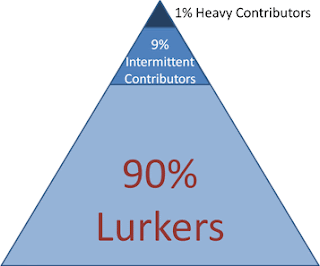Academic Identities, Terminal Degrees, power of the network...

It's been a while since I last just sat down to think and write about something (like the good old days when I was cMOOCing...). These past few weeks have been about conferences, and getting back on track with my dissertation proposal (although I think I am the only one who is keeping a score on that at this point). In my attempt to get back to writing, and engaging with friends and colleagues out there in the wild blue yonder which is the internet, I thought I would pick through my accumulated Pocket list until it's almost empty. One of the ponderings of interest came by means of an article on Inside Higher Ed titled Academic Identities and Terminal Degrees , where the overall question was: Does one need an academic terminal degree to identify professionally with that discipline? And, as Josh goes on to explicate Can only someone with a Ph.D. in economics call herself an economist? Do you need a Ph.D. in history to be a historian? How about socio...




